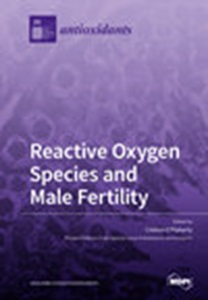栽培和采后贮藏期间的光照强度对芥菜和甘蓝微绿质量的影响
IF 6
2区 医学
Q1 BIOCHEMISTRY & MOLECULAR BIOLOGY
引用次数: 0
摘要
微型蔬菜是在子叶尚未发育成熟时就提前收获的蔬菜。其缺点之一是货架期短,容易损坏,这也是生产中面临的一个挑战。为了延长货架期,人们研究了一些采前和采后干预措施。在这里,甘蓝和芥菜在+21/17 °C、相对空气湿度约为 65% 的受控环境步入式室内生长,同时保持深红 61%、蓝色 20%、白色 15% 和远红 4% 的光谱组成(150、200 和 250 µmol m-2 s-1 光合光通量密度 (PPFD))。两种微型蔬果似乎都表现出了特定的、依赖于物种的反应。在光照条件下生长和储藏期间,较高的 PPFD 会导致两种微蔬于 D5 日的 TPC 含量增加。此外,150 和 250 PPFD 的辐照对甘蓝中的α-生育酚含量也有影响,在采后贮藏期间会增加α-生育酚含量。羽衣甘蓝和芥末微蔬于 D0 150 和 200 PPFD 时,β-胡萝卜素含量均有所增加。羽衣甘蓝在 D5 出现的差异不大,而芥菜在 150 PPFD 条件下的β-胡萝卜素含量最高。我们的研究结果表明,这两种微型蔬菜在光照下储存比在黑暗中储存更有益,温和的光胁迫是提高营养价值和延长货架期的有效工具。本文章由计算机程序翻译,如有差异,请以英文原文为准。
The Effect of Light Intensity during Cultivation and Postharvest Storage on Mustard and Kale Microgreen Quality
Microgreens are vegetable greens that are harvested early while they are still immature and have just developed cotyledons. One of the disadvantages and a challenge in production is that they exhibit a short shelf life and may be damaged easily. In seeking to prolong the shelf life, some pre- and postharvest interventions have been investigated. Here, kale and mustard microgreens were grown in a controlled-environment walk-in chamber at +21/17 °C, with ~65% relative air humidity, while maintaining the spectral composition of deep red 61%, blue 20%, white 15%, and far red 4% (150, 200, and 250 µmol m−2 s−1 photosynthetic photon flux density (PPFD)). Both microgreens seemed to exhibit specific and species-dependent responses. Higher PPFD during growth and storage in light conditions resulted in increased contents of TPC in both microgreens on D5. Additionally, 150 and 250 PPFD irradiation affected the α-tocopherol content by increasing it during postharvest storage in kale. On D0 150 for kale and 200 PPFD for mustard microgreens, β-carotene content increased. D5 for kale showed insignificant differences, while mustard responded with the highest β-carotene content, under 150 PPFD. Our findings suggest that both microgreens show beneficial outcomes when stored in light compared to dark and that mild photostress is a promising tool for nutritional value improvement and shelf-life prolongation.
求助全文
通过发布文献求助,成功后即可免费获取论文全文。
去求助
来源期刊

Antioxidants
Biochemistry, Genetics and Molecular Biology-Physiology
CiteScore
10.60
自引率
11.40%
发文量
2123
审稿时长
16.3 days
期刊介绍:
Antioxidants (ISSN 2076-3921), provides an advanced forum for studies related to the science and technology of antioxidants. It publishes research papers, reviews and communications. Our aim is to encourage scientists to publish their experimental and theoretical results in as much detail as possible. There is no restriction on the length of the papers. The full experimental details must be provided so that the results can be reproduced. Electronic files and software regarding the full details of the calculation or experimental procedure, if unable to be published in a normal way, can be deposited as supplementary electronic material.
 求助内容:
求助内容: 应助结果提醒方式:
应助结果提醒方式:


